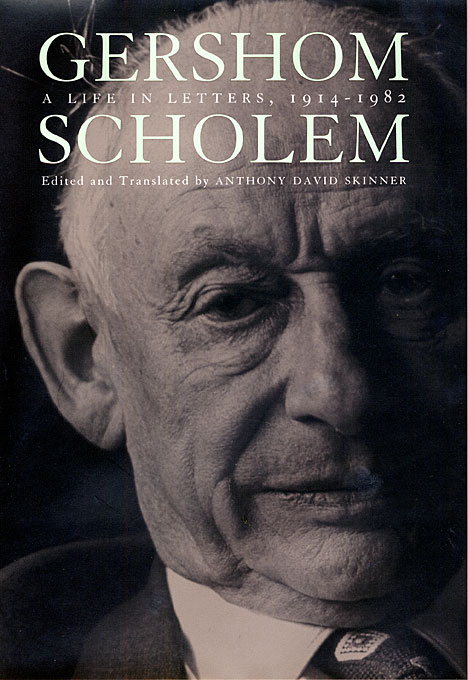
“A lively collection, which follows Scholem from his fevered adolescence to the sovereign authority of his final years. The editor’s illuminating biographical summaries set out useful links from decade to decade, but it is Scholem’s uncompromising voice that gives this volume its unified force and striking crescendos. In their unstinting energy, the letters show a man exactly where he wanted to be, and conscious of exactly why.” — Cynthia Ozick, The New Yorker
“Most of Scholem and Benjamin’s letters have already appeared in English in two volumes dedicated exclusively to their correspondence. Gershom Scholem: A Life in Letters offers new translations of a number of them and places them alongside Scholem’s letters to and from family members, academics, publishers, former students and literary and intellectual friends, some of whom, like Hannah Arendt, turned into enemies.” — Jonathan Wilson, The New York Times
“A biography of Gershom Scholem lies in these well selected and edited letters. Reading biographically between the letters’ lines, in the manner of Gershom Scholem, Master Scholar, you can learn how he found his own story between the lines of the Kabbalah’s texts he almost singlehandedly restored to life; and how he wrote his autobiography out so intensely, with such vast erudition and brilliance, in all his commentaries on the Kabballah that it became, over his lifetime, a biography of the whole endlessly resilient, culturally prolific Jewish people, a 20th century national epic.” — Elisabeth Young-Bruehl, author of Hannah Arendt: For Love of the World
“How, then, to tell Scholem’s story, and tease out its meanings, for readers who do not know the worlds he inhabited — worlds almost as alien to the modern reader as the lost ones that Scholem explored? Anthony David…has produced a biography in the form of an anthology of letters, with commentary. A knowledgeable and fluent writer, David divides his subject’s life into segments. His introductions to these segments show how well he understands Scholem’s personal situations and intellectual enterprises. [He] writes eloquently of what philology meant for Scholem. His translations are clear and generally accurate, and many of the letters that he has selected deal with matters of the highest interest.” — Anthony Grafton, The New Republic
“What can this lucky bookworm say to readers who are not especially curious about the kabbalah or about the history of universities in Israel? A great deal, as this selection of letters to and from Scholem makes clear. Some of its pleasures are simple ones: the spell-binding story of the Scholem clan…But this narrative also asks difficult questions: one is whether cleaving to a particular people and its tradition constitutes a self-imposed exile from a realm of more-universal concerns…[His] translations, thankfully, let the correspondents speak in voices that sound like their own.” — The Economist
